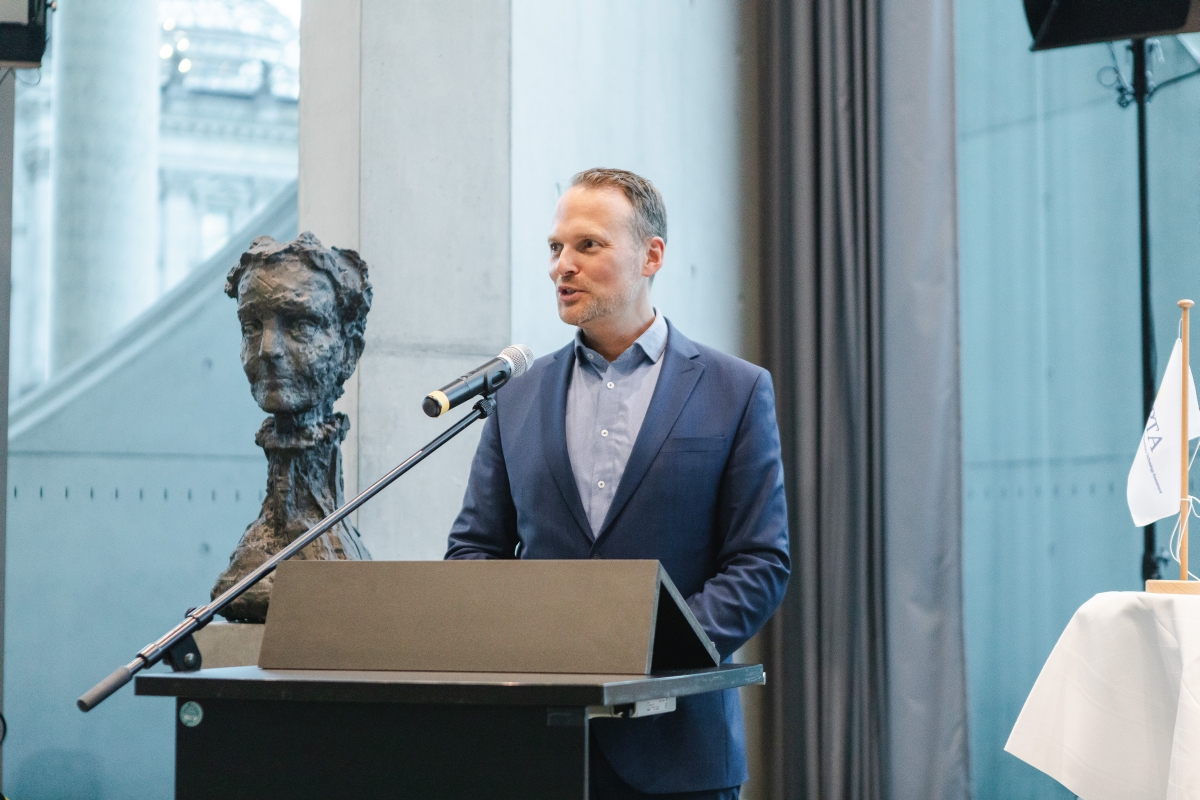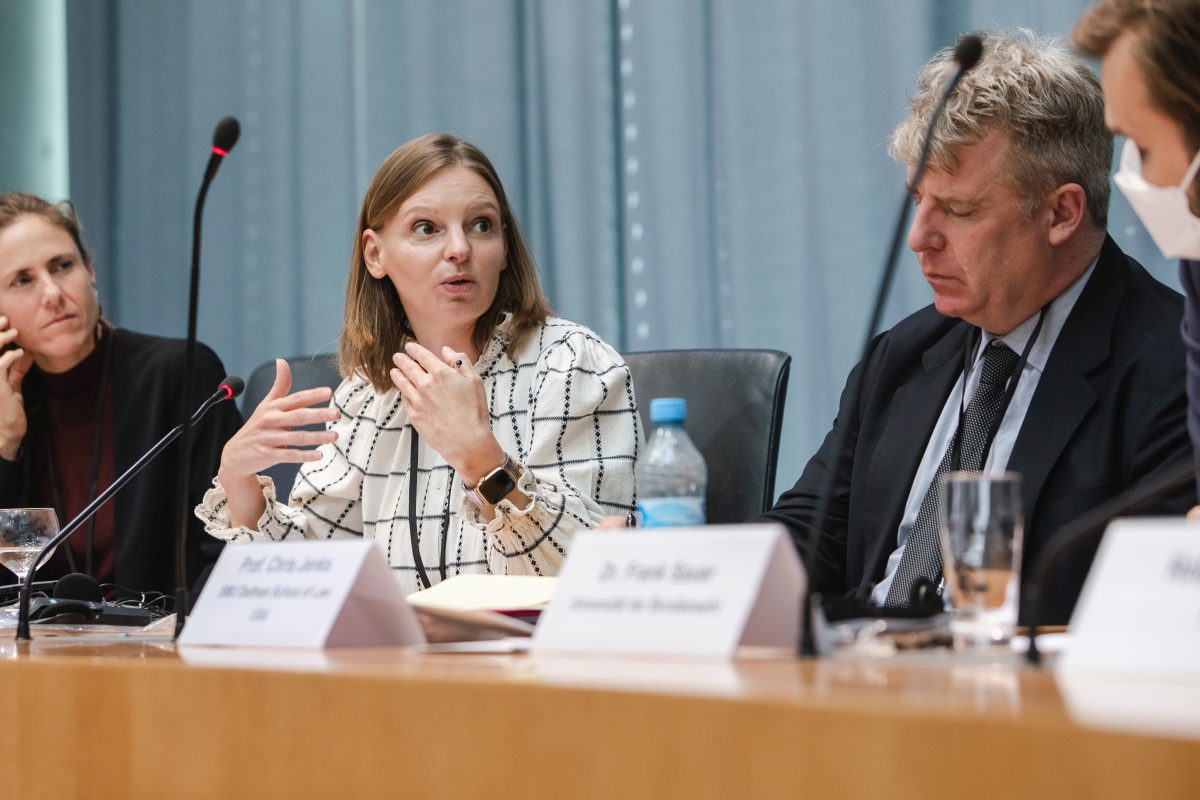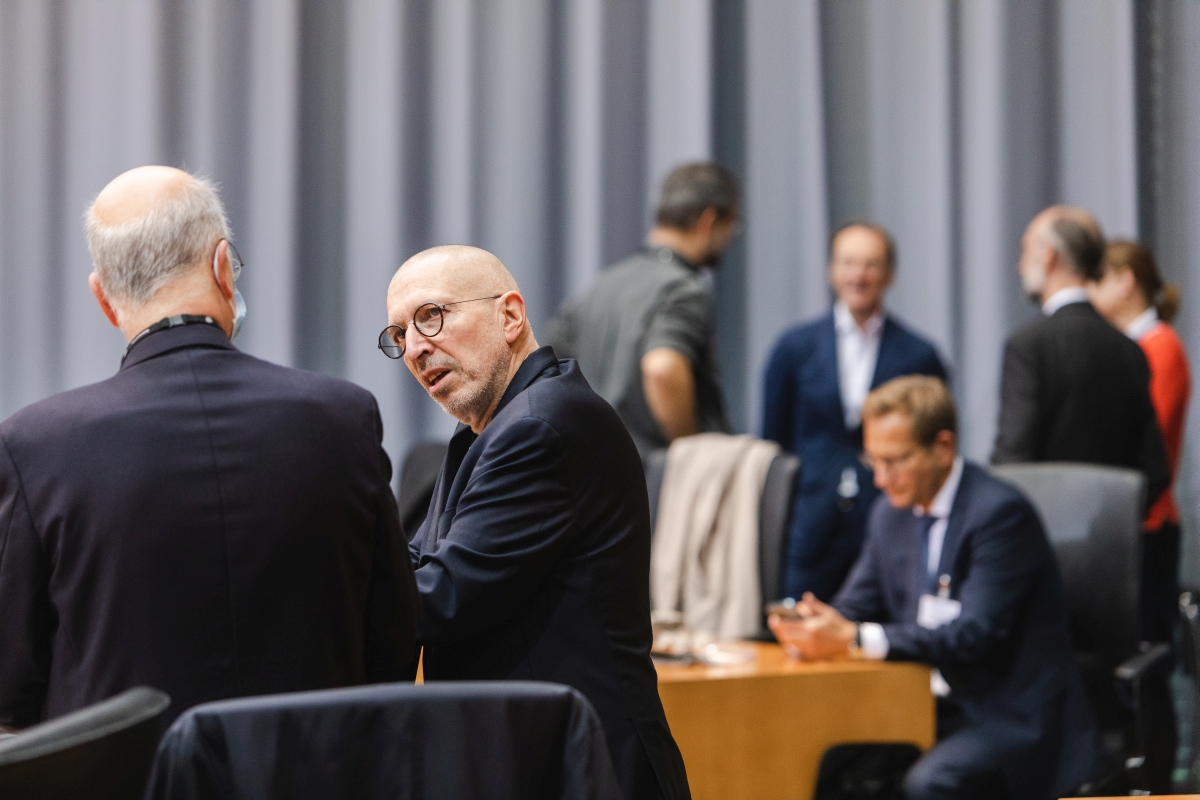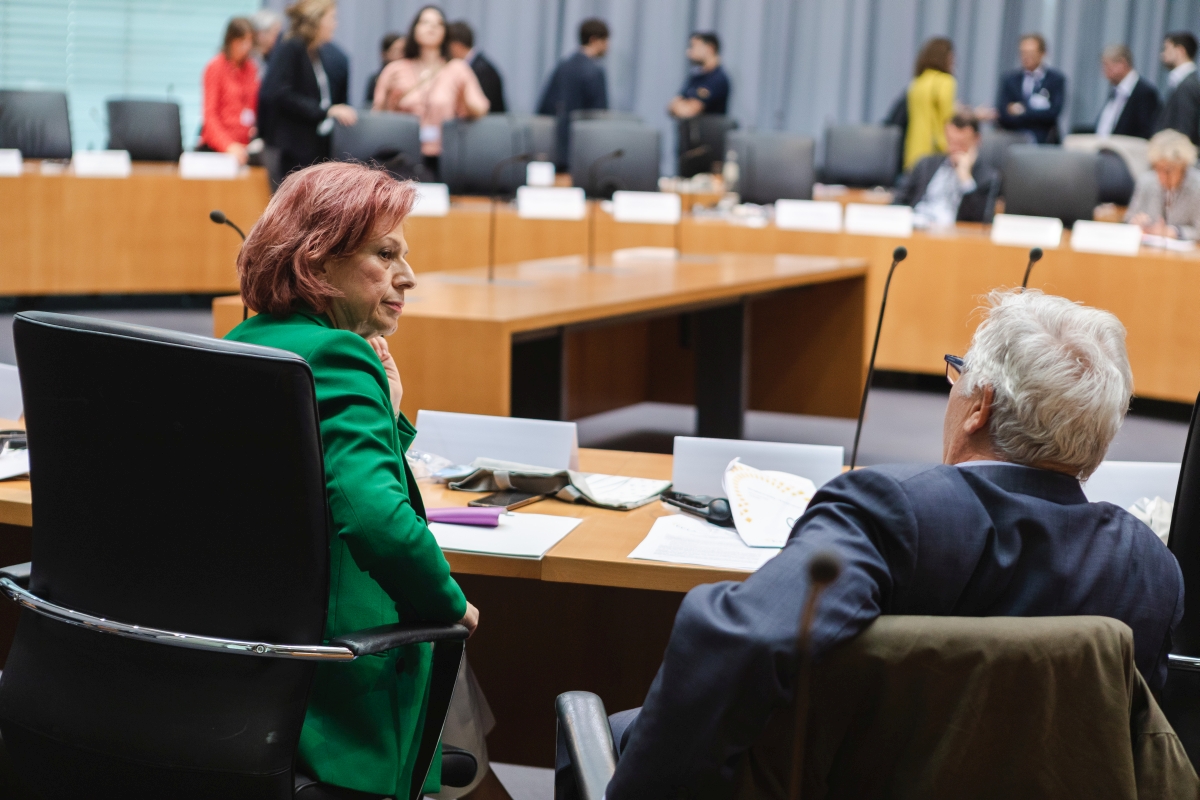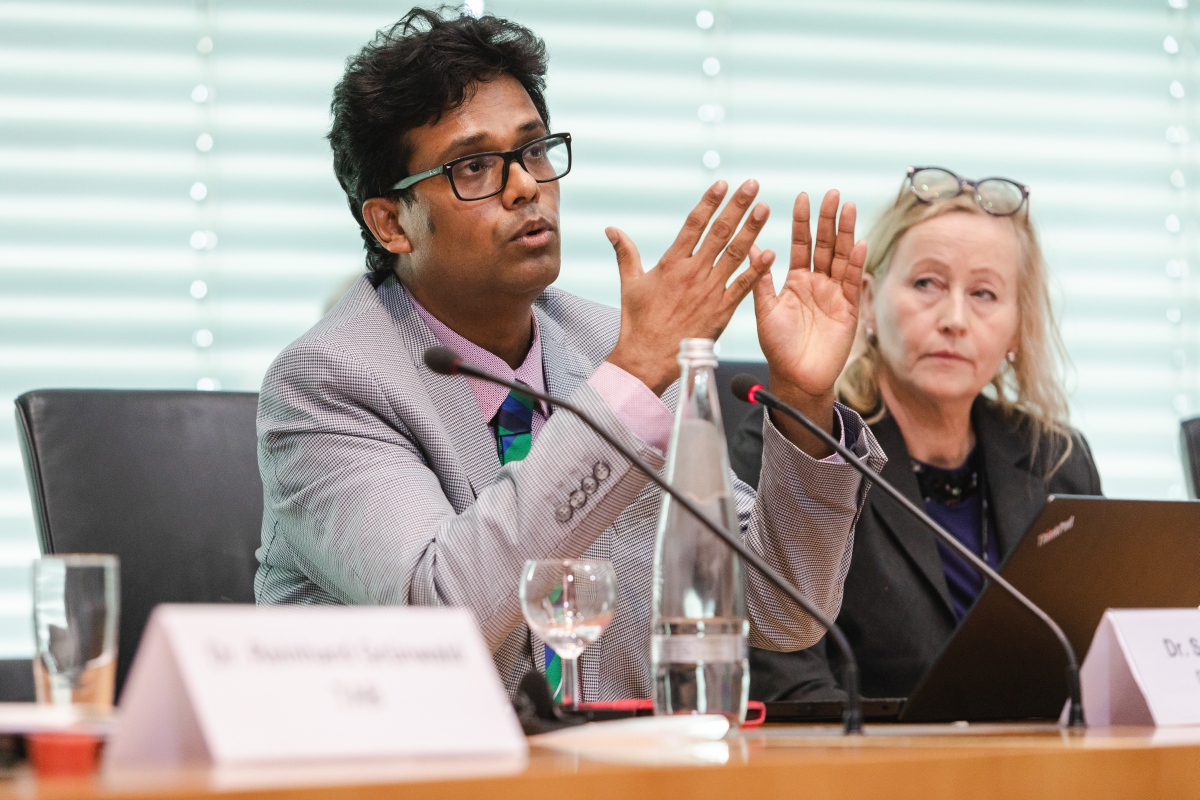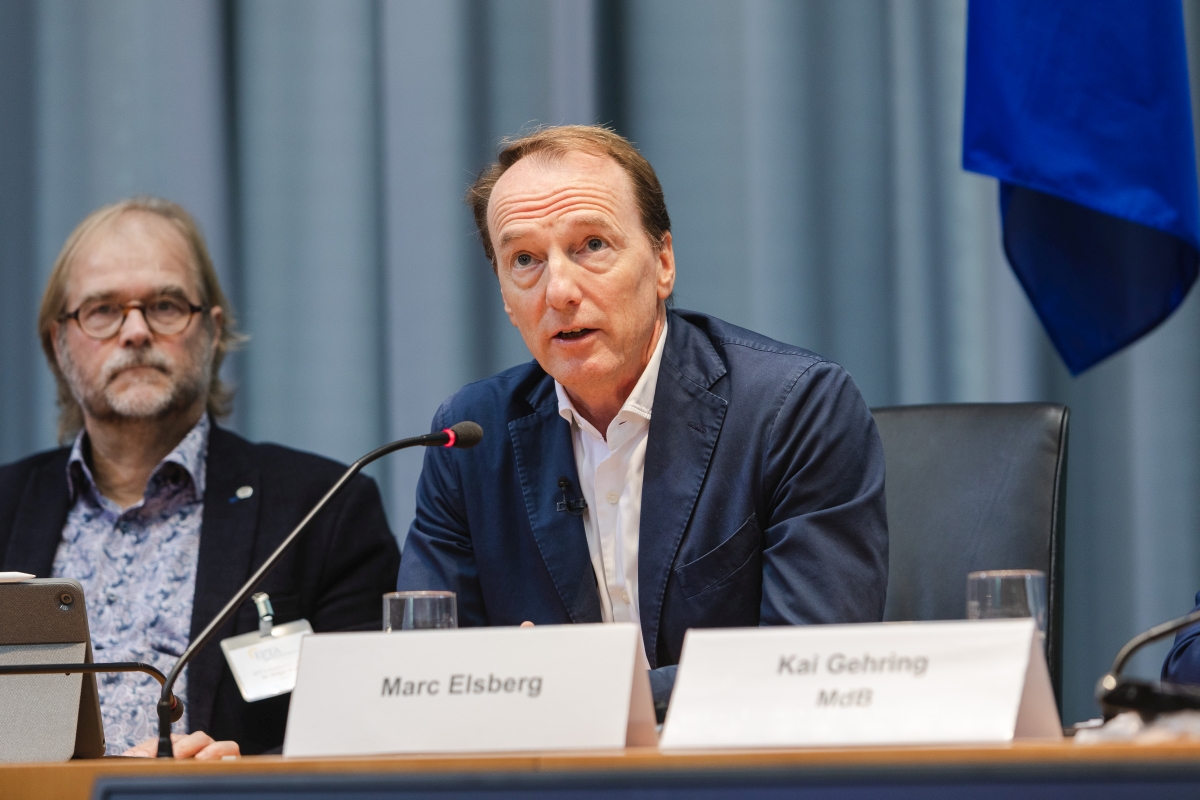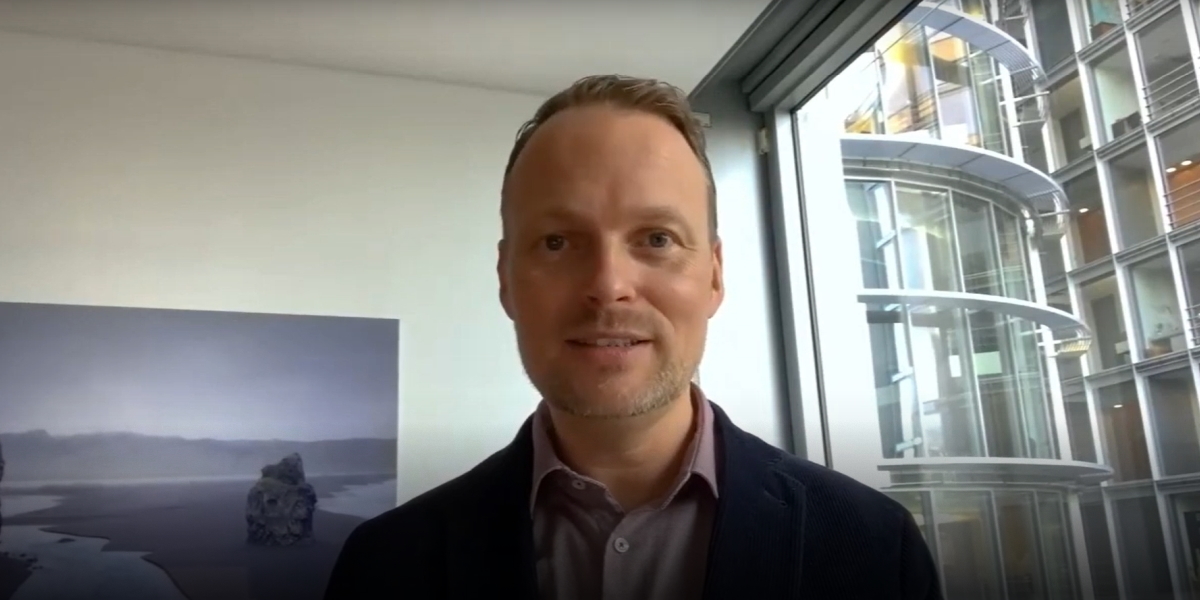Well Advised – Also in Times of Crisis
In many countries, parliamentary technology assessment (TA) is a way of its own of providing politics with scientific advice. In Germany, the Office of Technology Assessment with the German Bundestag (TAB) was established more than 30 years ago. Parliamentary technology assessment focuses on the early, differentiated perception and assessment of risks and opportunities of technologies as well as on exchange with stakeholders in society. But what, if there are real crises as it is the case now? How can TA help when abysses emerge in situations thought to be under control, may it be energy supply, global warming, or the threat by wars?
At the Conference of European Parliamentary Technology Assessment Institutions (EPTA), members of German Parliament and European scientists discussed the role of technology assessment in times of social and technical upheaval. In Autumn 2022, European scientists from 19 countries met in Berlin. They followed an invitation from German Parliament and the TAB that is run by Karlsruhe Institute of Technology (KIT).
Expertise for Evidence-based Politics
“Technology assessment is more important than ever,” emphasized Kai Gehring, Chairman of the German Bundestag’s Committee on Education, Research, and Technology Assessment, when opening the conference. And he added that scientific advice on complex relationships and new technical and sociotechnical developments is so important to decision-makers in times of multiple crises, because big challenges and disruptions can only be solved by evidence-based politics. Apart from managing acute crisis, research and innovation must be supported to make our society more creative, more robust, and more sustainable, Gehring said.
Crisis talks: Together with members of German Parliament, researchers discussed how TA can help control technical and social disruptions in an appropriate and human-centered way:
Enabling Parliaments to Shape the Future
Professor Armin Grunwald spoke about what technology assessment can do especially in times of a crises. TA can provide orientation by determining the opportunities and risks of technologies at an early stage. Moreover, TA can identify vulnerabilities and instabilities and analyze action options. “Technology assessment must help parliaments think actively and proactively about the future. This way, they can shape the future rather than react when the damage has already been done,” Grunwald said. The Director of TAB also heads the Institute for Technology Assessment and Systems Analysis (ITAS) of KIT, where he teaches technology philosophy.
„Prospective thinking must be fostered, so that we're able to better deal with the vulnerability of modern societies and respond better to the situation we find ourselves in.“
Armin Grunwald, Head of TAB
Faced with Disruption
How can we cope with such fundamental and partly destructive changes called disruption? How resilient are critical infrastructures, such as communication networks and energy supply grids? What does it mean when artificial intelligence determines the development and use of military weapons? Which role does technology play when dealing with climate change and the imminent collapse of natural habitats?
Using several examples from international research and technology assessment practice, the international experts discussed these questions, presented backgrounds, analyzed threat scenarios, determined the urgency of various action options, and answered questions of politicians.
Wishes to Be Met by Technology Assessment
“For us in politics, it is important that technology assessment is independent and not driven by interests,” Kai Gehring said. During the final conference round “From advice to action,” the members of Parliament expressed their expectations: An early identification of upcoming problems, a neutral, objective, and balanced presentation based on scientific findings, and “louder” PR work for the often very good TA work done.
Moreover, the politicians agreed that TA should inform about the costs associated with certain ways of acting as well as about the costs of non-acting. And politicians should be provided with strategies to classify and use existing knowledge.
TA work meeting all these requirements could enable politics to better prepare for worst-case scenarios. On the other hand, the politicians emphasized the importance to protect science against radical social trends and Europe as a continent of the freedom of science.
At the end of the EPTA conference, Gehring reminded the politicians of their duties: “Imagine: What would today’s global climate be like, if we had not only listened to climate researchers forty years ago, but followed their recommendations and aligned policies accordingly. Not only in Germany, but also in other industrialized nations?”
Bernd Stegmann, December 16, 2022

The report initiated by TAB contains contributions of European TA researchers on how to handle disruptions, with critical infrastructures being used as an example.
To the report
The ITAS-operated Office for Technology Assessment with the German Bundestag has provided German Parliament with neutral knowledge and action perspectives to providently shape sociotechnical change for more than thirty years.
More information

